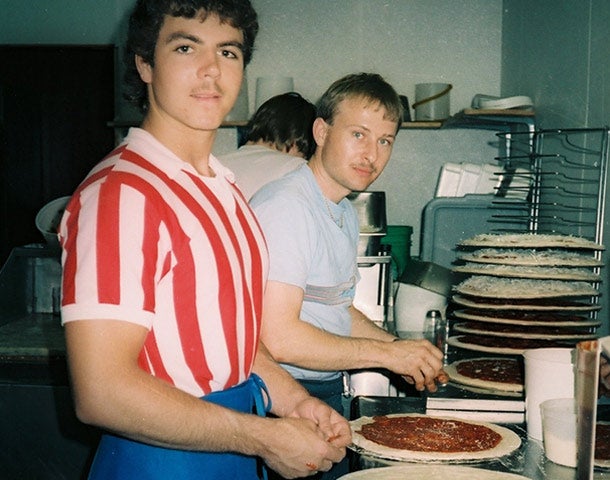Papa John’s Founder: ‘I Am the American Dream’
Opinions expressed by Entrepreneur contributors are their own.
In 1984, John Schnatter bought $1,600 worth of used restaurant equipment, set it up in a broom closet in the back of his father’s tavern and started making pizza.
His business would eventually become Papa John’s, the publicly-traded international pizza franchise that brought in $1.4 billion in sales last year alone.
“I am the American Dream,” Schnatter told Entrepreneur.com last month at the U.S. Chamber of Commerce during National Small Business Week.
Related: How to Build an Institution, Not a Short-Term Business
Schnatter got the idea for Papa John’s at age 15, while washing dishes at a pizza place called Rocky’s in his hometown of Jeffersonville, Ind. When Rocky’s was busy, Schnatter would be pulled away from washing dishes to make pizza. He paid attention.

Schnatter developed a keen understanding of what customers wanted. “Where we made pizzas was right where we washed dishes. Right next to it. So, if we made the pizza right, the plate came back empty. And if I didn’t make the pizza right, the plate came back half eaten and they didn’t take it with them.”
In addition to learning how to make a good pie, Schnatter noticed that while national franchises would deliver a pie to your door, the local, individually-owned shops, which made a higher quality product, did not provide the same delivery service. Noticing that gap in the market gave Schnatter the base for his Papa John’s business plan: He would make quality pizza and deliver it.
Related: What Separates Entrepreneurs From Mere Mortals: The Ability to Take Risk
After graduating from Ball State University in Muncie, Ind., Schnatter moved home. His father’s bar, Mick’s Lounge, was struggling financially. To keep the bar afloat, Schnatter sold his 1972 Camaro Z28, a car he loved dearly. With his father’s bar business on more stable footing, he decided to give his pizza shop idea a try. He bought used restaurant equipment and started making pizzas out of the broom closet. “We were selling $5 pizzas out the back, 50 cent beers in the front.”

Schattner surpassed his own early expectations. “The original goal for Papa John’s was to make $50-grand a year and have $50-grand in the bank so I could get a date,” he says.
When he opened a real location – outside of the broom closet, next to Mick’s Lounge – he says was doing about $9,000 in sales a week while comparable national chains were doing $6,000 in sales a week. “And I went, “If we can beat them in one store, we can beat them in the whole world.’ I thought that at 22.”
Related: Managing People Is an Art: 32 Ways to Do it Right.
Taking a page from KFC and Long John Silver’s, which were expanding rapidly through franchising in the same region where Schnatter was building his business, he decided franchising was the next logical step. “That was serendipitous, logistically where I am located,” he said. “It was just kind of instinctive and kind of the norm that if you had a successful business, you franchise.”
Today, there are 4,500 franchised Papa John’s locations, 700 of which Schattner and corporate Papa John’s own. The rest — some 3,800 pizza shops — are all independently owned and operated.
While he’s come along way, Schattner isn’t one to forget his journey. A few years ago, he went back and found his very same Camaro that he had to sell in the early 1984 to help keep his father’s bar open. He paid the owner $250,000 to get it back, and says the car is a daily reminder that hard work and sacrifice pay off in the long run.
Related: What Gets These 30 Entrepreneurs Out of Bed Every Day
In 1984, John Schnatter bought $1,600 worth of used restaurant equipment, set it up in a broom closet in the back of his father’s tavern and started making pizza.
His business would eventually become Papa John’s, the publicly-traded international pizza franchise that brought in $1.4 billion in sales last year alone.
“I am the American Dream,” Schnatter told Entrepreneur.com last month at the U.S. Chamber of Commerce during National Small Business Week.





